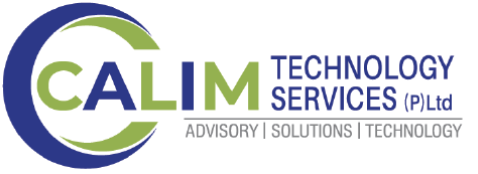
The Importance of Proactive Contract Management in Construction Projects
Written by Dr. Varghese Koshy Panicker, PhD, MCIPS, MBA, FCCM
CEO- CALIMIn the dynamic and complex world of construction, effective contract management is essential for the successful delivery of projects. Proactive contract management plays a crucial role in mitigating risks, ensuring compliance, and optimizing project outcomes. This article explores the key benefits and best practices of proactive contract management in construction projects.
Understanding the Importance of Proactive Contract Management
Construction projects are inherently exposed to a myriad of risks, from unexpected changes in project scope and scope creep to unforeseen delays, material shortages, and disputes between stakeholders. Effective contract management serves as a strategic safeguard, empowering project teams to anticipate, address, and resolve these challenges before they escalate.
By adopting a proactive approach to contract management, construction organizations can:
- Minimize Risks and Disputes: Thorough contract review, clear communication of obligations, and diligent monitoring of contract compliance help identify and resolve potential issues early, reducing the likelihood of costly disputes and legal battles.
- Enhance Project Efficiency: Proactive contract management enables project teams to stay ahead of schedule changes, material shortages, and other disruptions, allowing them to make timely adjustments and maintain project momentum.
- Ensure Compliance: Vigilant contract monitoring and risk assessment help construction firms adhere to applicable laws, regulations, and industry standards, mitigating the risk of fines, penalties, or reputational damage.
- Optimize Financial Performance: Proactive contract management supports cost control, invoicing accuracy, and timely payments, ultimately contributing to improved profitability and financial stability.
- Foster Stronger Stakeholder Relationships: By demonstrating a commitment to transparency, collaboration, and equitable contract administration, construction firms can build trust and strengthen partnerships with clients, subcontractors, and other stakeholders.
Best Practices for Proactive Contract Management in Construction
Effective proactive contract management in construction projects involves the following key practices:
- Comprehensive Contract Review and Drafting
The foundation of proactive contract management begins with a thorough review and drafting of construction contracts. Project teams should carefully examine contract terms, identify potential risks and ambiguities, and ensure that the contract aligns with the project's scope, budget, and timeline. This process should involve collaboration with legal counsel, subject matter experts, and key stakeholders to ensure that the contract is comprehensive, balanced, and protective of the organization's interests. - Clear Communication and Stakeholder Engagement
Effective contract management requires clear and consistent communication with all project stakeholders, including clients, subcontractors, suppliers, and internal teams. Project managers should establish transparent communication channels, regularly share updates, and foster a collaborative environment to address any concerns or issues that arise during the project lifecycle. - Robust Contract Monitoring and Compliance Tracking
Proactive contract management involves diligent monitoring and tracking of contract compliance. This includes regularly reviewing contract terms, milestones, and deliverables, as well as closely monitoring the performance of subcontractors and suppliers. By staying vigilant and addressing any deviations or non-compliance issues promptly, construction firms can mitigate the risk of disputes, delays, and cost overruns. - Proactive Change Management
Construction projects are inherently subject to changes, whether due to design modifications, unexpected site conditions, or changes in regulatory requirements. Proactive contract management requires a robust change management process that anticipates and addresses these changes in a timely and systematic manner. This includes clearly defined change order procedures, thorough documentation, and timely negotiations to ensure that all contract amendments are properly executed and communicated to all stakeholders. - Effective Dispute Resolution Mechanisms
Despite the best efforts of project teams, disputes may still arise during construction projects. Proactive contract management involves establishing clear and effective dispute resolution mechanisms, such as mediation, arbitration, or adjudication, to address conflicts as they emerge. By having these processes in place, construction firms can navigate disputes in a structured and constructive manner, minimizing the impact on project outcomes. - Continuous Improvement and Lessons Learned
Proactive contract management is an iterative process that requires ongoing review and refinement. Construction firms should actively capture and incorporate lessons learned from past projects to continually improve their contract management practices. This may involve analyzing contract performance data, gathering feedback from project teams, and implementing process improvements to enhance the efficiency and effectiveness of future contract management efforts.
The Role of Technology in Proactive Contract Management
In the digital age, construction firms can leverage technology to enhance their proactive contract management capabilities. Tools such as contract management software, project management platforms, and data analytics solutions can significantly streamline and optimize various aspects of contract management, including:
- Contract Lifecycle Management: Contract management software can automate the contract drafting, review, and approval processes, ensuring that all contract documents are centralized, accessible, and version-controlled.
- Risk Monitoring and Alerts: Advanced analytics and monitoring tools can help identify and flag potential risks, such as missed milestones, cost overruns, or non-compliance issues, enabling project teams to address them proactively.
- Automated Compliance Tracking: Digital contract management systems can automate the tracking of contractual obligations, deliverables, and key performance indicators, ensuring that all parties adhere to the agreed-upon terms.
- Collaborative Workflows: Cloud-based project management platforms can facilitate seamless collaboration between project teams, clients, and stakeholders, enabling real-time communication, document sharing, and issue resolution.
- Data-Driven Insights: By leveraging data analytics, construction firms can gain valuable insights into contract performance, identify patterns and trends, and make informed decisions to optimize future contract management strategies.
Conclusion
In the dynamic and complex world of construction, proactive contract management is a critical success factor. By adopting a comprehensive approach that encompasses contract review, clear communication, compliance monitoring, change management, and dispute resolution, construction firms can mitigate risks, enhance project efficiency, and foster stronger stakeholder relationships. Furthermore, the strategic integration of technology can significantly elevate the effectiveness of proactive contract management, enabling construction organizations to stay ahead of the curve and deliver successful projects.
